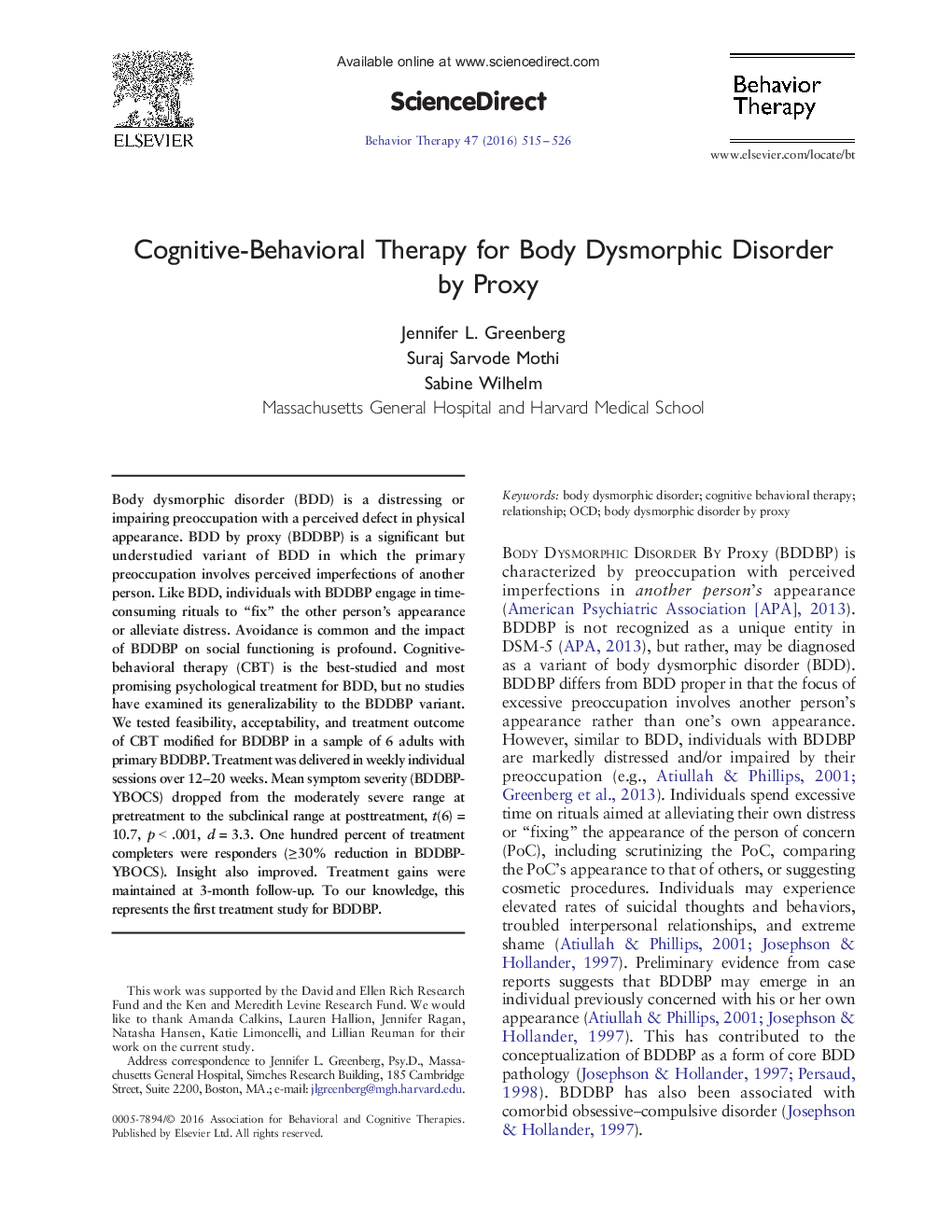| Article ID | Journal | Published Year | Pages | File Type |
|---|---|---|---|---|
| 901150 | Behavior Therapy | 2016 | 12 Pages |
•Developed and tested a cognitive-behavioral therapy for BDD by proxy (n = 6)•At posttreatment, BDDBP and psychosocial functioning were significantly improved•Treatment gains were maintained at 3-month follow-up
Body dysmorphic disorder (BDD) is a distressing or impairing preoccupation with a perceived defect in physical appearance. BDD by proxy (BDDBP) is a significant but understudied variant of BDD in which the primary preoccupation involves perceived imperfections of another person. Like BDD, individuals with BDDBP engage in time-consuming rituals to “fix” the other person’s appearance or alleviate distress. Avoidance is common and the impact of BDDBP on social functioning is profound. Cognitive-behavioral therapy (CBT) is the best-studied and most promising psychological treatment for BDD, but no studies have examined its generalizability to the BDDBP variant. We tested feasibility, acceptability, and treatment outcome of CBT modified for BDDBP in a sample of 6 adults with primary BDDBP. Treatment was delivered in weekly individual sessions over 12–20 weeks. Mean symptom severity (BDDBP-YBOCS) dropped from the moderately severe range at pretreatment to the subclinical range at posttreatment, t(6) = 10.7, p < .001, d = 3.3. One hundred percent of treatment completers were responders (≥ 30% reduction in BDDBP-YBOCS). Insight also improved. Treatment gains were maintained at 3-month follow-up. To our knowledge, this represents the first treatment study for BDDBP.
